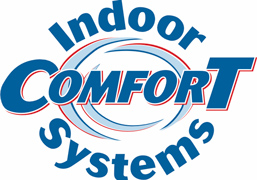
Significant changes are coming for the heating and cooling industry! Cooling systems transitioning from R-410a to newer refrigerants like R-454B refrigerant and R-32 refrigerant will be coming in 2025. These new coolants are designed to be better for the environment and comply with revised regulations about global warming. But what does that mean for your present HVAC system and any new services?
This change will minimize the environmental effect of our air conditioning systems. Beginning in 2025, new AC systems will utilize new class of refrigerants that more closely match with climate goals. If you're considering getting an AC replacement soon, this is the ideal time to investigate how these updates can influence your home's comfort.
Why Exactly Is R-410a Being Phased Out?
For years, R-410a was the preferred refrigerant for residential air conditioners because of its effectiveness. But studies uncovered that R-410a still contributes to global warming. As a result, the Environmental Protection Agency (EPA) established an initiative back in 2021. The industry will progressively eliminate R-410a to make room for refrigerants that are more environmentally friendly.
The HVAC industry has implemented transitions like this before. When the industry switched from using R-22 (commonly called Freon) to R-410a, homeowners like you had to adjust. And in the same way, this shift will influence how systems are constructed as well as the optimal methods for HVAC maintenance. Both property owners and HVAC technicians need to prepare for these new refrigerants if they wish to continue enjoying the most reliable, most economical cooling possible.
Which New Refrigerant Is Replacing R-410a?
The new batch of refrigerants are categorized under the new "A2L" classification and include the newest R-454B refrigerant and R-32 refrigerant coolants. They're created to offer the same effective cooling while greatly lowering their global warming potential (GWP) compared to R-410a.
R-454B refrigerant is expected to be especially efficient due to its GWP being about 78% less than R-410a. While R-454B refrigerant is technically more flammable than R-410a, updates to system manufacturing and maintenance practices will ensure servicing is just as safe to perform. Additionally, today's cooling systems using R-454B refrigerant are considerably more energy efficient, contributing to big savings on energy bills over time, especially if you maintain your system with routine HVAC maintenance.
This switch isn't simply about replacing the refrigerant—it affects the whole HVAC system because the properties of R-454B refrigerant make it incompatible with older systems. In time, every home and business using R-410a will need to upgrade to one of the new systems.
R-410a Replacement: What Do I Need to Do to Change to New HVAC Refrigerants?
Switching to the new refrigerants will not be as easy as swapping out the new coolants with what's used in your home's HVAC system. That's because the different properties of R-454B refrigerant and R-32 refrigerant mean you can't use them in a system that uses R-410a. But rest assured—you can keep using your current R-410a system for now. Just be aware that as time progresses, the expense of repairs and tune-ups will increase as R-410a becomes scarcer.
Anticipating the changes is the most effective way to stay on top of things. If your AC system is already aging, this is the ideal time to think about upgrading to a newer model that uses the new R-454B refrigerant. Plus, the team here at Indoor Comfort Systems HVAC can help you in making the transition with flexible options for HVAC replacement financing.
Which HVAC Refrigerant Is in My Air Conditioner?
Unsure which refrigerant your AC system employs? In general, you can easily find this information by examining the label on your outdoor unit. This label displays the type of refrigerant, the model number and various other specifications about your cooling system.
But if you have difficulty reading the label or are missing your user manual, don't worry! You can always connect with one of the skilled technicians at Indoor Comfort Systems HVAC to help you in figuring it out. Get all the details you need by reaching out at 215-741-5505.
